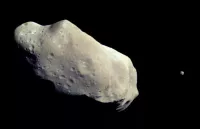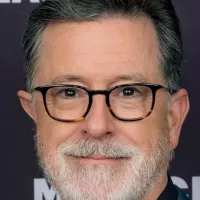Australia, officially the Commonwealth of Australia, encompasses the Australian mainland, Tasmania, and numerous smaller islands. It is the sixth-largest country globally and the largest in Oceania, covering 7,688,287 km2. Known for being the flattest and driest inhabited continent, Australia boasts diverse landscapes and climates, ranging from interior deserts to coastal tropical rainforests, reflecting its megadiverse status.
1900: Commonwealth of Australia Constitution Act
In 1900, the name "Commonwealth of Australia" for the federation of the six former colonies was formalized in the Commonwealth of Australia Constitution Act.
January 1901: Federation of the colonies
In January 1901, the federation of the Australian colonies was achieved, establishing the Commonwealth of Australia as a nation under the new Australian Constitution.
1901: Earthquakes
Between 1901 and 2017, there were 18 earthquakes with a moment magnitude of greater than 6.
1901: Strengthening the White Australia Policy
Following Federation in 1901, the white Australia policy was strengthened, restricting further migration from certain areas.
1901: Self-governing dominion
From 1901, Australia was a self-governing dominion within the British Empire.
1901: Melbourne as temporary capital
From 1901, Melbourne served as the temporary capital of Australia.
1901: The colonies federated
In 1901, the Australian colonies federated, forming the Commonwealth of Australia and marking a significant step towards autonomy from the United Kingdom.
1902: Second Boer War
In 1902, the Second Boer War concluded, marking the largest overseas deployment of Australia's colonial forces.
1905: Administration of the Territory of Papua
In 1905, Australia took over the administration of the Territory of Papua.
1906: Release of The Story of the Kelly Gang
In 1906, The Story of the Kelly Gang, the world's first feature-length narrative film, spurred a boom in Australian cinema during the silent film era.
1910: Temperature rise
Since 1910, climate change has led to a 1.5°C rise in Australian temperatures.
1911: Australian Capital Territory formed
In 1911, the Australian Capital Territory was formed as the location for Canberra, the future federal capital.
1914: Australia joined the Allies in the First World War
In 1914, Australia joined the Allies in the First World War and participated in fighting on several fronts.
1915: ANZAC at Gallipoli
In 1915, the defeat of the Australian and New Zealand Army Corps (ANZAC) at Gallipoli is regarded as the "baptism of fire" that forged the new nation's identity.
1920: Administration of the Territory of New Guinea
In 1920, Australia took over the administration of the Territory of New Guinea.
1920: League of Nations
In 1920, Australia was one of the founding members of the League of Nations.
1927: Melbourne as temporary capital
Until 1927, Melbourne served as the temporary capital of Australia.
1931: Statute of Westminster
In 1931, the Statute of Westminster ended the UK's ability to legislate for Australia at the federal level without Australia's consent.
1938: Commonwealth Games
Australia hosted the Commonwealth Games in 1938.
1939: Australia joined the Allies in the Second World War
From 1939, Australia joined the Allies in fighting the Second World War, with armed forces fighting in multiple theaters.
1939: Statute of Westminster backdated
In 1939, the Statute of Westminster was backdated to this year, to confirm the validity of legislation passed during World War II.
1942: Australia adopted the Statute of Westminster
In 1942, Australia adopted the Statute of Westminster, backdated to 1939.
1942: Statute of Westminster Adoption Act
In 1942, the Statute of Westminster Adoption Act was enacted, further increasing Australia's autonomy from the United Kingdom.
1942: Fall of Singapore and Bombing of Darwin
In 1942, the fall of Singapore and the bombing of Darwin led to a shift towards the United States as Australia's main ally.
1945: Post-1945 Immigration
Contemporary Australian culture is diverse and reflects the country's Indigenous traditions, British and Irish heritage, and post-1945 history of multicultural immigration.
1945: United Nations
In 1945, Australia was one of the founding members of the United Nations.
1949: Territory of Papua and New Guinea unified
In 1949, the Territory of Papua and the Territory of New Guinea were unified.
1951: ANZUS treaty
Since 1951, Australia has been allied with the United States under the ANZUS treaty.
1955: Split in the Labor Party
In 1955, tensions over communist influence in society led to a bitter split in the Labor Party.
1956: Melbourne Olympics
In 1956, Australia hosted the Summer Olympics in Melbourne.
1962: Commonwealth Games
Australia hosted the Commonwealth Games in 1962.
1967: 1967 referendum
As a result of the 1967 referendum, the federal government gained the power to legislate with regard to Aboriginal Australians, and Aboriginal Australians were fully included in the census.
1970: Rainfall reduction
Since 1970, there has been a reduction in rainfall from April to October in southern Australia.
1971: First One Day International
In 1971, The Australian national cricket team competed against England in the first One Day International, winning the game.
1973: Nobel Prize in Literature
In 1973, Patrick White, the first recipient of the Miles Franklin literary prize, went on to win the Nobel Prize in Literature.
1973: End of Racial Discrimination
In 1973, all overt racial discrimination ended, and multiculturalism became official policy in Australia.
1973: Abolition of White Australia policy
In 1973, the last vestiges of the White Australia policy were abolished, leading to increased non-European immigration.
1975: Introduction of National Insurance Scheme
In 1975, Australia introduced a national insurance scheme for healthcare.
1975: Racial Discrimination Act
In 1975, the Racial Discrimination Act was established in Australia.
1975: Independence of Papua New Guinea
In 1975, the Territory of Papua and New Guinea gained independence from Australia.
1975: Dismissal of the Whitlam government
In 1975, the most notable exercise of reserve powers was the dismissal of the Whitlam government in the constitutional crisis.
1981: Medicare Introduced
In 1981, the national insurance scheme became universal once more under the name of Medicare.
1982: Commonwealth Games
Australia hosted the Commonwealth Games in 1982.
1982: Tropical cyclones fallen
Since 1982, the number of tropical cyclones has fallen.
1984: Sex Discrimination Act
In 1984, the Sex Discrimination Act was established in Australia.
1986: Australia Acts
In 1986, the Australia Acts severed the remaining constitutional ties between Australia and the United Kingdom.
1989: Newcastle earthquake
In 1989, the Newcastle earthquake was Australia's deadliest, resulting in 13 deaths.
1992: Disability Discrimination Act
In 1992, the Disability Discrimination Act was established in Australia.
1999: Constitutional referendum
In 1999, 55% of voters rejected abolishing the monarchy and becoming a republic during a constitutional referendum.
1999: Environment Protection and Biodiversity Conservation Act
In 1999, the federal Environment Protection and Biodiversity Conservation Act was established as the legal framework for the protection of threatened species.
2000: Sydney Olympics
In 2000, Australia hosted the Summer Olympics in Sydney.
2001: Afghanistan War
From 2001 to 2021, Australia joined the United States in fighting the Afghanistan War.
2001: Religious Affiliations in 2001
In 2001, 15.5% of the population identified as having no religion. This is in comparison to the 38.9% of the population that identified as having no religion in 2021.
2003: Adult literacy rate
In 2003, Australia's adult literacy rate was estimated to be 99%.
2004: First Twenty20 International
In 2004, The Australian national cricket team competed against New Zealand in the first Twenty20 International, winning the game.
2004: Age Discrimination Act
In 2004, the Age Discrimination Act was established in Australia.
2004: Australian Greens Become Third Largest Party
In 2004, the Australian Greens became the third largest political party in Australia, based on both vote count and membership numbers.
2006: Commonwealth Games
Australia hosted the Commonwealth Games in 2006.
2009: Commonwealth Government Target
In 2009, the Commonwealth government set a target of 20% renewable energy by 2020.
2011: Report on literacy and numeracy competence levels
A 2011 report for the Australian Bureau of Statistics found that 44% of the population does not have high literary and numeracy competence levels.
2012: Report on literacy and numeracy competence levels
A 2012 report for the Australian Bureau of Statistics found that 44% of the population does not have high literary and numeracy competence levels.
2012: Changes in Energy Sourcing
From 2012 to 2022, the energy sourced from renewables has increased 5.7%, while energy sourced from coal has decreased 2.6%.
2012: Obesity Ranking
In 2012, Australia ranked 35th in the world for its proportion of obese women and near the top of developed nations for its proportion of obese adults; 63% of its adult population is either overweight or obese.
2014: Implementation of National Curriculum
Since 2014, a national curriculum developed by the Commonwealth has been implemented by the states and territories in Australia.
2015: Share of Local Box Office
In 2015, Australian films delivered a 7.7% share of the local box office.
2016: Contribution to the economy
In the 2016 financial year, education contributed more than $28 billion to the economy.
2017: Earthquakes
Between 1901 and 2017, there were 18 earthquakes with a moment magnitude of greater than 6.
2017: Legalization of Same-Sex Marriage
In 2017, same-sex marriage was legalized in Australia.
2018: Commonwealth Games
Australia hosted the Commonwealth Games in 2018.
2018: Urban Population
In 2018, 67% of Australia's population lived in the Greater Capital City Statistical Areas.
2018: National Indigenous Languages Survey (NILS)
In 2018, the National Indigenous Languages Survey (NILS) found that more than 120 Indigenous language varieties were in use or being revived, although 70 of those in use were endangered.
2019: International Students Enrolled
In 2019, 812,000 international students were enrolled in Australian universities and vocational institutions, representing on average 26.7% of the student bodies of Australian universities.
2019: International Tourists
In 2019, Australia attracted 9.5 million international tourists.
2019: Research and Development Spending
In 2019, Australia spent $35.6 billion on research and development.
March 2020: COVID-19 pandemic restrictions
In March 2020, lockdowns and restrictions were implemented in response to the COVID-19 pandemic.
2020: World's Published Research Contribution
In 2020, Australia contributed over 4% of the world's published research.
2020: Household Debt
In 2020, Australia had the second-highest level of household debt in the world, after Switzerland.
2020: Renewable Energy Production
In 2020, Australia produced 27.7% of its electricity from renewable sources.
June 2021: Endangered Species
In June 2021, over 1,000 animal and plant species were listed by Australian governments as endangered or critically endangered.
2021: Wealth Per Adult
As of 2021, Australia had the second-highest amount of wealth per adult, after Luxembourg.
2021: Indigenous Population
At the 2021 census, 3.8% of the Australian population identified as being Indigenous—Aboriginal Australians and Torres Strait Islanders.
2021: Languages Spoken at Home
At the 2021 census, English was the only language spoken in the home for 72% of the population. Mandarin, Arabic, Vietnamese, Cantonese and Punjabi were the next most common languages spoken at home.
2021: Ancestry Groups
At the 2021 census, the most commonly nominated ancestry groups as a proportion of the total Australian population were: 57.2% European, 33.8% Oceanian, 17.4% Asian, 3.2% North African and Middle Eastern, 1.4% Peoples of the Americas, and 1.3% Sub-Saharan African.
2021: Afghanistan War
From 2001 to 2021, Australia joined the United States in fighting the Afghanistan War.
2021: Australia pastureland
In 2021, Australia had 10% of the global permanent meadows and pastureland.
2021: Healthcare Spending in 2021
In 2021, Australia spent around 9.91% of its total GDP on health care.
2021: Electricity Generation Sources
In 2021, Australia's electricity generation was sourced from various sources, including black coal (37.2%), brown coal (12%), natural gas (18.8%), hydro (6.5%), wind (11.1%), solar (13.3%), bio-energy (1.2%) and others (1.7%).
2021: Net Zero Emissions Target
In 2021, a target for net zero emissions by 2050 was set.
2021: Rollout of vaccines
In 2021, following the rollout of COVID-19 vaccines, restrictions were gradually eased.
2021: Aboriginal Religions Affiliations
In 2021, just under 8,000 people declared an affiliation with traditional Aboriginal religions.
2021: Australian Defence Force Personnel
In 2021, the Australian Defence Force had 84,865 currently serving personnel, including 60,286 regulars and 24,581 reservists.
2021: Average Population Age
In 2021, the average age of the Australian population was 39 years.
2021: Most Favourably Viewed Countries
In 2021, the most favourably viewed countries by the Australian people included New Zealand, the United Kingdom, Japan, Germany, Taiwan, Thailand, the United States, and South Korea.
2021: Religious Affiliations in 2021
In the 2021 census, 38.9% of the population identified as having no religion, up from 15.5% in 2001. Christianity was the largest religion, accounting for 43.9% of the population.
2021: Travel and Tourism Competitiveness Report
The 2021 Travel and Tourism Competitiveness Report ranked Australia seventh-highest in the world.
2021: Census Data on Indigenous Languages
The 2021 census found that 167 Indigenous languages were spoken at home by 76,978 Indigenous Australians. Yumplatok, Djambarrpuyngu, and Pitjantjatjara were among the most widely spoken.
June 2022: Area covered by the National Reserve System
As at 30 June 2022, Australia's National Reserve System covered over 22% of Australia's land mass.
June 2022: Unemployment Rate
As of June 2022, Australia had an unemployment rate of 3.5%.
June 2022: Australian Government Debt
In June 2022, Australian government debt was about $963 billion.
2022: Tech Council of Australia Study
A 2022 study by The Tech Council of Australia stated that the Australian technology sector combined contributes $167 billion a year to the economy and employs 861,000 people.
2022: PISA Evaluations
According to the 2022 PISA evaluations, Australian 15-year-olds ranked ninth in the OECD for reading and science and tenth for maths.
2022: Changes in Energy Sourcing
From 2012 to 2022, the energy sourced from renewables has increased 5.7%, while energy sourced from coal has decreased 2.6%.
2022: Permanent Migrants Admitted
In 2022, 212,789 permanent migrants were admitted to Australia, with a net migration population gain of 518,000 people inclusive of non-permanent residents.
2022: Human Development Index Ranking
In 2022, Australia was ranked tenth in the Human Development Index.
2022: Defence Spending
In 2022, Australia's defence spending was 1.9% of GDP, ranking as the world's 13th-largest defence budget.
2022: Renewable Energy Target
In 2022, a new target of 82% renewable energy by 2030 was set.
October 2023: COVID-19 no longer a communicable disease
In October 2023, Australia declared that COVID-19 was no longer a communicable disease incident of national significance.
2023: Free Trade Agreement with the UK
In 2023, Australia signed a free trade agreement with the United Kingdom.
2024: Australian Nobel Prize Laureates
As of 2024, 13 Australian scientists have been awarded the Nobel Prize in physics, chemistry or medicine, and two have been awarded the Fields Medal.
2024: Australia's Strategy for Nature
Australia's Strategy for Nature 2024–2030 is the national biodiversity plan that aims to reverse biodiversity loss in Australia by 2030.
2024: Press Freedom Ranking
In 2024, Reporters Without Borders placed Australia 39th on a list of 180 countries ranked by press freedom.
2024: ADF Active Operations
In 2024, the Australian Defence Force (ADF) was actively involved in operations in the Middle East and the Indo-Pacific, contributing to UN forces, assisting in natural disaster relief, and preventing asylum-seekers from entering the country.
January 2025: Species on the Australian National Species List
In January 2025, there were 168,386 named species on the Australian National Species List.
May 2025: Elections
Following elections on 3 May 2025, the prime minister is Anthony Albanese of the Australian Labor Party.
November 2025: Population Estimate
As of 18 November 2025, the estimated population of Australia is 28,147,700.
2025: Global Innovation Index Ranking
Australia ranked 22nd in the Global Innovation Index 2025.
2030: Australia's Strategy for Nature
Australia's Strategy for Nature 2024–2030 is the national biodiversity plan that aims to reverse biodiversity loss in Australia by 2030.
2030: Renewable Energy Target
In 2022, a new target of 82% renewable energy by 2030 was set.
2032: Brisbane Olympics
Australia is set to host the 2032 Summer Olympics in Brisbane.
2050: Net Zero Emissions Target
In 2021, a target for net zero emissions by 2050 was set.
Mentioned in this timeline
Sudan officially the Republic of the Sudan is a country...
New Zealand is an island country in the southwestern Pacific...
Germany officially the Federal Republic of Germany is a nation...
China officially the People's Republic of China is an East...
Japan is an East Asian island country located in the...
Syria officially the Syrian Arab Republic is a West Asian...
Trending

1 minute ago Jessica Pegula faces Varvara Gracheva in Dubai Tennis Championships second round.

22 hours ago Clara Tauson Faces Sofia Kenin at WTA Dubai: Predictions and Betting Odds

2 minutes ago Coco Gauff anticipates Dubai struggles, faces Kalinskaya; Alexandrova trending in WTA Dubai.

2 minutes ago NASA Warns of Undetected City-Killer Asteroids Posing Threat to Earth
2 hours ago Canada vs New Zealand T20 World Cup 2026: Thrill, Live Scores, and Game Updates.

8 months ago Zohran Mamdani's success highlights Jewish divide; Israelis fear New York threat after Iran missiles.
Popular
Randall Adam Fine is an American politician a Republican who...

Pam Bondi is an American attorney lobbyist and politician currently...

Kid Rock born Robert James Ritchie is an American musician...

Barack Obama the th U S President - was the...
The Winter Olympic Games a major international multi-sport event held...

XXXTentacion born Jahseh Dwayne Ricardo Onfroy was a controversial yet...